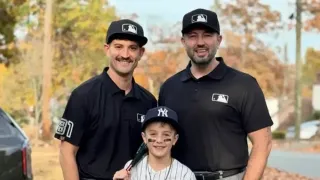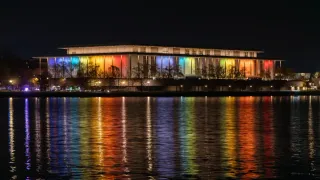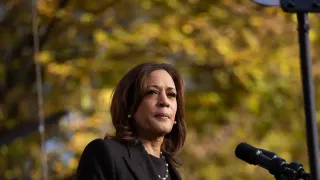
Nov 2
Florida Man’s Starbucks Tantrum Over Pride Flag Sparks Outrage—And Community Resilience
READ TIME: 3 MIN.
It was a typical morning rush at a Starbucks on 4th Street in St. Petersburg, Florida—a city known for its vibrant queer community and sunny disposition. But the caffeine buzz was cut short on October 22 when a customer’s tantrum over a hanging Pride flag escalated from words to property destruction, leaving not just coffee stains and a damaged wall, but a swirl of community conversation in its wake .
According to St. Petersburg police, 31-year-old Tucker Alden Kemp of Clearwater entered the Starbucks, spotted the rainbow flag, and demanded a manager—insisting the store replace the Pride flag with the American flag. When the manager, keeping calm, explained that the display was company policy and not a personal affront, Kemp’s agitation steeped into something more physical. He splashed his tea on the flag, yanked it down with enough force to damage the wall, and stuffed the sodden symbol into the trash .
The incident caused approximately $210 in damages and resulted in Kemp’s arrest for first-degree misdemeanor criminal mischief. He was booked into Pinellas County Jail and released on $500 bond after about six hours .
For LGBTQ+ people, a Pride flag hanging in a mainstream space like Starbucks isn’t just decoration—it’s a beacon. It signals safety, acceptance, and the company’s ongoing commitment to inclusion. When someone rips it down, the act reverberates beyond the drywall into the lived experiences of queer people everywhere.
“It’s a reminder that even in 2025, visibility is both a lifeline and a lightning rod,” says local activist and barista Jamie Lee. “It’s not just about coffee or flags. It’s about whose stories are welcome in public spaces, and who gets to feel at home” .
This incident lands in a state where LGBTQ+ rights and visibility have repeatedly been at the center of political and cultural battles. Florida’s recent legislative climate—marked by high-profile debates over curriculum, pronouns, and public displays—means every rainbow flag can feel like both a celebration and an act of resistance.
Starbucks, no stranger to controversy around its support for queer rights, has consistently maintained its policy of displaying Pride flags during LGBTQ+ History Month and Pride celebrations. The company’s decision to stand by its team, calmly explaining to Kemp that the display was policy, underscores the ongoing role of corporate allyship in today’s culture wars.
For many patrons, the flag is more than branding; it’s a statement of solidarity. “Seeing the flag in my local Starbucks is a small but mighty reminder that we belong, even when the world outside feels hostile,” shared one regular customer on social media .
As news of the incident spread, social media lit up with reactions ranging from outrage to dark humor. Some dubbed Kemp’s outburst “spilling the tea”—a phrase the queer community knows well, though usually reserved for gossip, not vandalism . Others pointed out that if a rainbow flag can provoke such a strong response, it’s all the more evidence of why visibility matters.
Netizens were quick to defend the Starbucks staff’s calm and professional handling of the situation, emphasizing that a business has the right to create an inclusive atmosphere for all. As one commenter put it, “Starbucks management didn’t come to his house and stick the flag in his face. It’s their establishment and they can display any flag they want. Don’t like it? Don’t go there” .
But beyond the memes and the outrage, there’s a sobering undercurrent to the story. Acts like these—however minor they may seem in a police blotter—echo the daily microaggressions and outright hostilities queer people still face. They’re reminders that progress is neither linear nor guaranteed.
What makes this story more than just another “Florida man” headline is the way it encapsulates the ongoing struggle for LGBTQ+ inclusion in everyday life. The Pride flag, for all its colors, has never been just about celebration. It’s about survival, solidarity, and the right to be seen.
In a year when anti-LGBTQ+ sentiment continues to flare up in legislatures and on social feeds, every public act of Pride is both ordinary and extraordinary. The Starbucks incident is a microcosm of a much larger conversation: about how symbols shape public life, how allyship is tested in the mundane moments, and how the queer community, once again, refuses to be erased.
For every flag torn down, ten more go up—sometimes in protest, sometimes in defiance, but always in hope.






